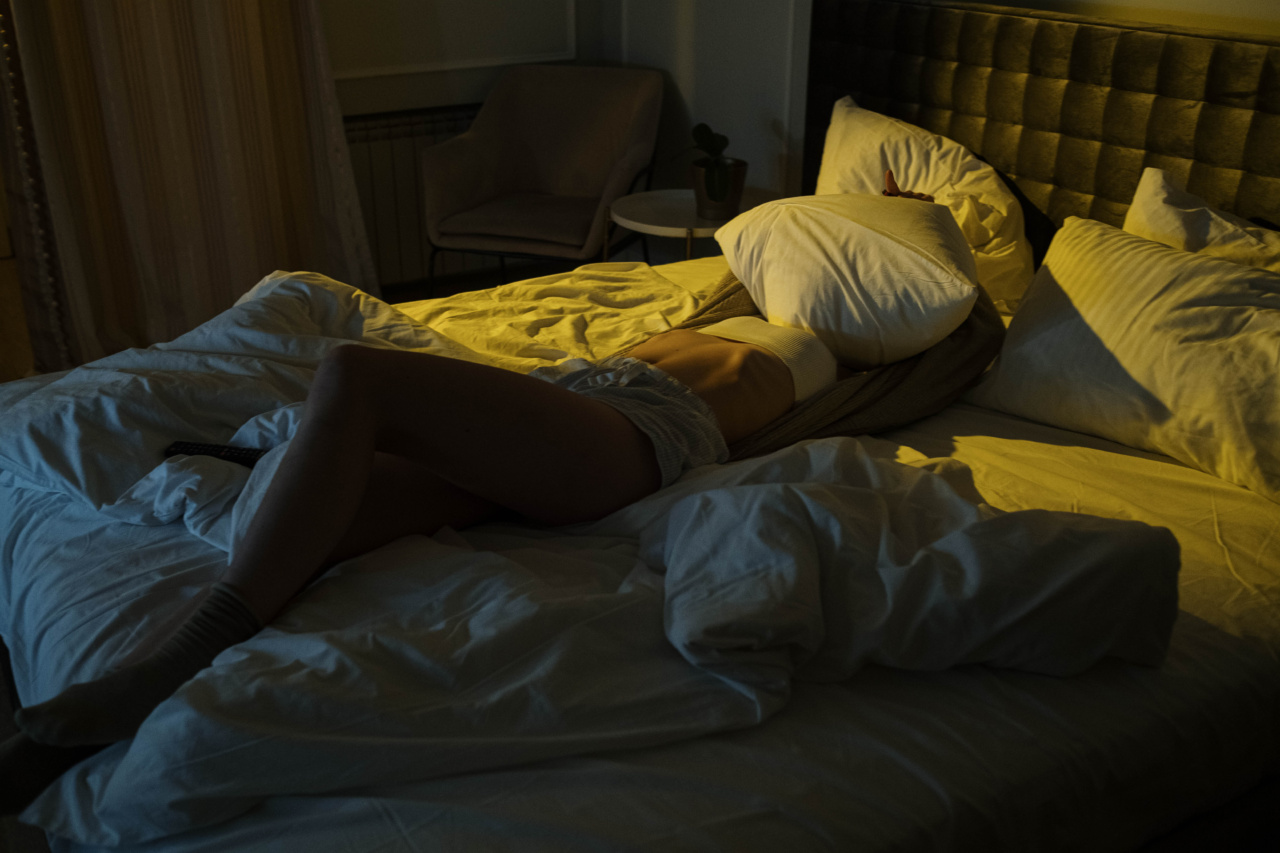Sleep is a fundamental aspect of human life. It rejuvenates our bodies, heals us from daily wear and tear, and prepares us for the challenges of the next day.
While many individuals experience the luxury of falling asleep effortlessly and enjoying a restful night, there is a substantial portion of the population that grapples with a sleep disorder known as insomnia. Insomnia is characterized by persistent difficulty falling asleep or staying asleep, leading to significant impairment in daytime functioning.
This article delves into the dark side of sleep, exploring the challenges faced by those living with insomnia and examining potential coping mechanisms and treatment options.
The Many Faces of Insomnia
Insomnia takes on different forms, varying in severity and duration. It can be categorized into three main types: acute, chronic, and comorbid. Acute insomnia is short-term, often brought on by situations like stress, jet lag, or pain.
Chronic insomnia, on the other hand, lasts for at least three nights a week for a minimum of three months and is often a result of an underlying medical or psychiatric condition. Comorbid insomnia refers to those cases where insomnia coexists with other conditions, such as depression, anxiety, or chronic pain.
Symptoms and Impact
Individuals living with insomnia suffer from various symptoms that extend beyond simply struggling to sleep. These may include difficulty concentrating, memory problems, irritability, decreased motivation, and impaired performance at work or school.
Moreover, the persistent lack of restorative sleep raises the risk of developing physical health problems, such as cardiovascular diseases, obesity, and weakened immune systems. The emotional toll of insomnia can lead to increased rates of anxiety, depression, and a general decline in one’s overall quality of life.
The Vicious Cycle of Insomnia
Insomnia often perpetuates in a vicious cycle, making it increasingly difficult to break free from its grip.
The anxiety and frustration associated with failing to fall asleep or stay asleep can create a negative association between the bedroom and sleep. This association then triggers a conditioned response where the bedroom becomes a place of restlessness and wakefulness, further hindering one’s ability to find rest.
The more an individual worries about sleep, the harder sleep becomes to attain, thus deepening the cycle of insomnia.
Identifying the Causes
The causes of insomnia are multifaceted and may differ from person to person. Common triggers include stress, anxiety, depression, chronic pain, certain medications, caffeine or stimulant use, irregular sleep schedules, and poor sleep habits.
Identifying and addressing the underlying causes is crucial in managing and potentially overcoming insomnia. In some cases, a sleep study or consultation with a healthcare professional may be necessary to pinpoint the root causes more accurately.
Coping Mechanisms for Insomnia
While there is no one-size-fits-all solution for managing insomnia, there are several coping mechanisms that individuals can employ to improve their sleep quality and mitigate the negative consequences of sleep deprivation:.
1. Implement a Sleep Routine
Establishing a consistent sleep schedule by going to bed and waking up at the same time every day can train the body to recognize when it’s time to sleep.
Creating a relaxing pre-sleep routine, such as taking a warm bath or reading a book, can also help signal to the body that it’s time to wind down.
2. Create a Sleep-Friendly Environment
The bedroom should be a sanctuary of rest, free from distractions that can hinder sleep. Keep the room dark, quiet, and at a comfortable temperature. Investing in a comfortable mattress, pillows, and bedding can significantly enhance sleep quality.
3. Limit Electronic Device Usage
The blue light emitted by electronic devices like smartphones, tablets, and laptops can interfere with the body’s natural sleep-wake cycle. It is advisable to avoid using these devices for at least an hour before bedtime.
Instead, engaging in relaxing activities like reading or listening to calming music can promote better sleep.
4. Practice Stress Management Techniques
High levels of stress and anxiety can contribute to insomnia, making it essential to incorporate stress management techniques into daily life.
Techniques such as deep breathing exercises, meditation, yoga, or journaling can help calm the mind and prepare it for sleep.
5. Avoid Stimulants
Consuming stimulants like caffeine, nicotine, and alcohol close to bedtime can disrupt sleep. It is advisable to limit or avoid these substances, especially in the hours leading up to sleep, to promote better sleep quality.
Treatment Options for Insomnia
If self-help strategies prove insufficient, seeking professional treatment may be necessary. Treatment options for insomnia can vary depending on the underlying causes and severity of the condition. These options may include:.
1. Cognitive Behavioral Therapy for Insomnia (CBT-I)
This form of therapy helps individuals identify and change negative thoughts and behaviors that contribute to insomnia.
CBT-I aims to reframe beliefs surrounding sleep and develop healthier sleep habits, providing long-term relief and improved sleep quality.
2. Medications
In some cases, doctors may prescribe certain medications to help manage insomnia. These can range from over-the-counter sleep aids to prescription medications specifically designed to promote sleep.
However, it is crucial to discuss the potential risks and benefits with a healthcare professional before starting any medication regimen.
3. Relaxation Techniques
Relaxation techniques such as progressive muscle relaxation, guided imagery, or biofeedback training can help individuals unwind and prepare for sleep. These practices focus on calming the mind and body, facilitating a smoother transition into sleep.
4. Sleep Hygiene Education
Working with healthcare professionals trained in sleep medicine can provide valuable education on sleep hygiene practices. This includes guidance on optimizing sleep environments, improving sleep habits, and optimizing sleep-wake schedules.
Conclusion
Living with insomnia can be an arduous and exhausting journey that impacts every facet of one’s life. However, it is important to remember that effective coping mechanisms and treatment options exist.
By implementing healthy sleep habits, seeking professional help when necessary, and addressing underlying causes, individuals can gradually diminish the dark side of insomnia and pave the way for a more restful and rejuvenating sleep experience.































